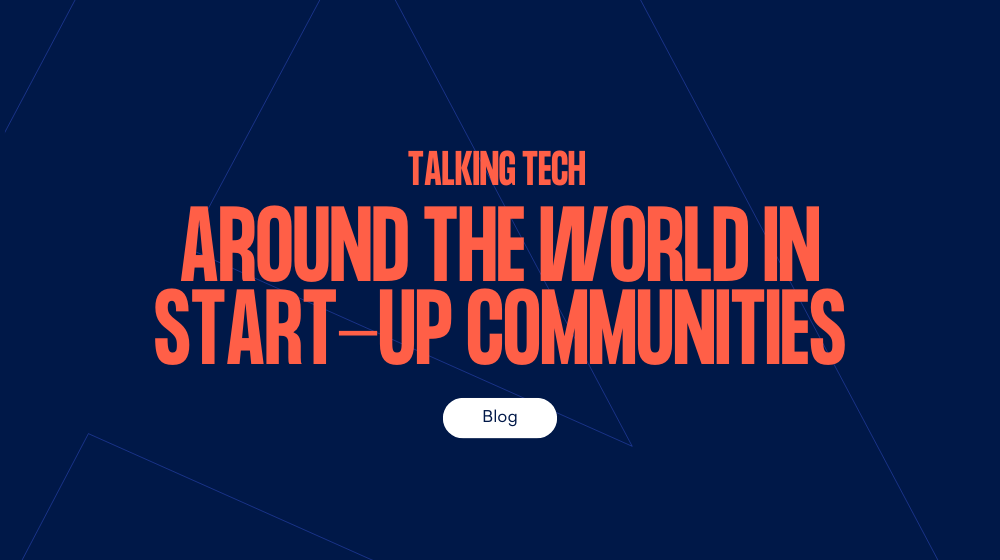As more and more start-up communities around the world look to challenge San Francisco’s Silicon Valley for the tech-hub crown, we explore some of the most thriving tech ecosystems on the planet, and how communication is playing a key role in their success.
Silicon Allee, Berlin

Established in 2011, Berlin’s Silicon Allee is staking its claim as Europe’s answer to Silicon Valley. With Brexit approaching, the German capital is looking to position itself as the tech superpower of the EU, and this community of entrepreneurs, start-ups and businesses is the driving force of its ambition.
To attract the best minds and companies to this vibrant stretch of Berlin, the team at Silicon Allee has placed great emphasis on communication and collaboration, using content to attract and inform its current residents, prospective ones and stakeholders.
In fact, Silicon Allee actually began its life as a blog, but the name soon became synonymous with Berlin’s entire tech ecosystem, providing an identity to build a strong community around. The team still runs the regular blog, posting engaging content that shines a spotlight on the start-ups that call Silicon Allee home.
The physical centre of the community is the Silicon Allee campus, an 80,000 sq ft complex with offices, apartments, a cafe, a craft beer bar and event spaces. Regular community meetups reinforce the focus on collaboration.
Not content with keeping communication at home, Silicon Allee strives to connect Berlin’s tech ecosystem with the rest of the world. It does this through its internationally renowned events, regular English-language blog, and by offering consultation services to the international start-ups considering a move to one of the most happening hubs for tech in the world.
B. Amsterdam

While Silicon Allee represents the tech power of an entire city, B. Amsterdam is a community based across just three buildings. Despite this, it’s actually the largest start-up ecosystem in Europe – impressive hey?
B. Amsterdam boasts 40,000 sq m of co-working, office, event and meeting space across its three buildings, with lounges, a gym, rooftop restaurant and even a cinema, all on site.
This Amsterdam tech hub wants to ‘build a bridge between start-ups, creatives and corporates’, encouraging them to connect and learn from one another. Part of this knowledge-sharing happens through the hub’s blog, with its regular ‘B. Stories’ allowing readers to follow members and projects as they develop and innovate.
As well as its start-ups, B. Amsterdam prides itself on some of Europe’s most unique working spaces, and as such, has found itself on numerous ‘best of’ and ‘top 10’ co-working lists, in both domestic and international press.
Tel Aviv

B. Amsterdam and Silicon Allee might be leading examples of Europe’s start-up scene, but there are also some thriving tech communities much further afield. Israel, for example, has the world’s highest number of start-ups per capita, with Tel Aviv becoming well known for tech in recent years.
The city, and country as a whole, has an extremely strong talent pool when it comes to tech experts and young innovators. However, the country’s small size means that there are few local customers, so business is often done internationally.
With a significant time-difference to the U.S and small domestic market, Tel Aviv has placed great importance on focusing on the benefits of working in the city to draw both foreign investment and businesses.
Tel Aviv boasts city-wide Wi-Fi, something the majority of Europeans still pine for. This means communicating on the move is easier and cost-free, a big draw for tech companies. Not to let it go unnoticed, Tel Aviv celebrated the launch by lining its Wi-Fi-ready streets with coloured balloons, proving subtlety isn't always key.
Communication has not only helped Tel Aviv attract outside investment and talent, but also strengthened its tech community too. The city’s start-up scene has adopted an ‘open door’ policy, which encourages knowledge sharing between businesses of all sizes, providing young start-ups with valuable tips from long-standing tech kings and queens. Many social media groups have also been set up, connecting the community and its people, spawning cross-company ideas and relationships.
As we’ve seen above, tech communities come in all shapes and sizes, but there’s one thing the above all share and that’s great communication. In any strong community, collaboration and communication are vital. It’s also about connecting tech communities with the people and places outside them too, while celebrating the talent, innovation and discovery that is taking place within.




